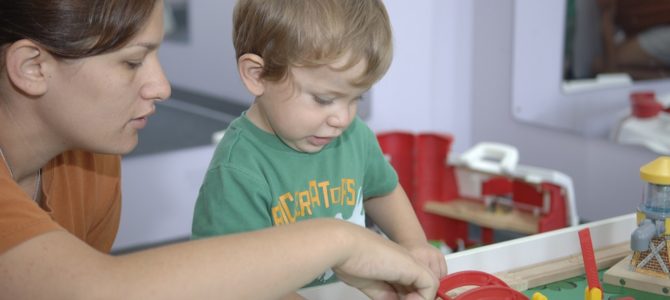
Americans love babies. At least, we do in theory. It’s just not clear we all enjoy raising flesh and blood miniature humans anymore.
Last Friday, Pew Research released the results of a June survey showing that “41 percent of U.S. adults think that families of three or more children is ideal. . . . the highest Gallup has seen on this measure since 1997.” Gallup reports these respondents are more likely to have lower income and educational attainment or to be Republican. I suspect they also skew more religious than the average millennial.
But who will actually have those families of three or more children — Gen Z? If we examine the results of the survey Morning Consult did for The New York Times’ Upshot, which ran last Thursday, it seems clear that millennials will either have fewer children than they’d wanted or opt out of parenthood altogether.
Millennials, millennials, it’s time we have a chat. I’ve already offered six reasons anyone who’s cohabiting and debating marriage should put a ring on it sooner rather than later. Now, I’d like to address some of the concerns millennials raised about parenthood in this survey.
1. Focus on What You Can Control
Among millennials with fewer children than they’d wanted, 49 percent said they’re “worried about the economy,” 37 percent are “worried about global instability,” 36 percent are “worried about domestic politics,” 33 percent are “worried about climate change,” and 27 percent are “worried about population growth.” Whew, that’s a lot of big worries!
I understand wanting to err on the side of caution, but the world has never been problem-free, and sometimes we need to act in spite of that. Further, the most meaningful things in life often require a leap of faith at the outset. Or, in the wise words of a mentor, “Leap and the net will appear.”
2. Paid Family Leave Is On The Rise
Parents, 39 percent of you say you’re having fewer kids than your ideal because there’s “not enough paid family leave” and 38 percent said there’s none. According to Working Mother, however, “Since late 2017, an increasing number of private employers have expanded their paid maternity leave and paternity leave offerings, some doing so dramatically,” all to attract and retain employees like you. Employers hear you, and they’re responding.
3. Child Care Is Tough But Not Impossible
Sixty-four percent of current parents and 31 percent of would-be parents cited the high cost of child care. I’m with you. It’s not only tough, but can also be expensive to find people you trust to care for your children.
The good news is that it’s not forever. For most families, the first five years are the most costly in this category. Every family has different needs and preferences, but there are ways to control costs, whether it’s help from family members, parents adjusting work schedules to be home, or a trade between families who alternate watching one another’s children.
4. Babies Don’t Need Houses
Now, among those without children, 24 percent of respondents remain so because they “can’t afford a house.” If you think you need to buy a house in a great school district, consider: You have five years and nine months (at least!) before your firstborn starts kindergarten. That’s several years to save and buy into your ideal district or devise an acceptable Plan B. Apartment living works just fine in the short-term.
5. Let’s Reduce Student Debt
Thirteen percent of respondents say they’re not sure about parenthood because they have “too much student debt.” Everyone’s situation is different, but this could be a good time for students, parents, and alumni to start pressuring the federal government to weigh practical solutions to the student loan crisis, including reducing the flow of federal dollars to universities (since that actually raises students’ costs).
Here in Washington, DC, American University allows students to graduate in three years, saving families a whole year of tuition. Perhaps more schools should introduce such programs, and we should encourage students to talk to potential employers before choosing majors, so they know they’re employable post-graduation.
6. Family Isn’t Your Jam
This is the group that most concerns me, amidst our crisis of loneliness, crisis of meaning, and the rise in suicides. Leaving aside the 30 percent of respondents with “no desire for children” — that number seems high to me, but there will always be some people in that camp — 36 percent of respondents are willing to forego kids because they “want leisure time,” 18 percent say “career is a greater priority,” and 14 percent say they “work too much.”
Guys, guys! No one on her deathbed ever said she wished she’d spent more time working or watching random movies. They all wish they’d spent it with family. Work and spur-of-the-moment outings can be exciting, but that’s not as fulfilling in the long-run as human relationships where you’ve invested time and energy.
When something bad (inevitably) happens in your life, it’s your family that’ll be there for you, not your job. And there are only so many nights that going out partying can be thrilling. At some point, it grows stale, unlike cuddling with your snuggly, giggly toddler.
Think about it. Sleep on it, if need be. Parenthood isn’t an exclusive club, but it’s a mighty special one, and we’d love to have you as members.









